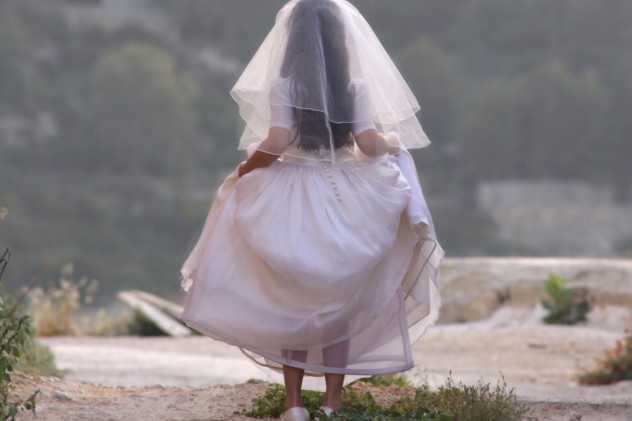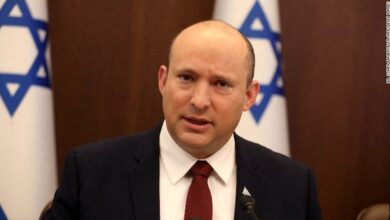On Saturday, a group of young students and graduates from Ebda Benafsak visited a school in one of Cairo’s slums, Ezbet al-Nasr, with the aim of educating the children that live nearby and influencing children’s behavior. They taught lessons on subjects such as respect, teamwork, patience and hygiene. The school itself was next to a dumpster, and the children were exposed to the smell of burned trash and sewage in the street. Some of the committee members had a role in helping the governor’s adviser to convert the dumpster into a youth center.
Ebda Benafsak (meaning begin with yourself) is a small project developed by young Egyptians after the 25 January revolution. Its general aim is development and raising awareness by creating projects to solve some common problems that face Egyptian society. An example of such a project is stickers to increase awareness about the follies of double-parking, the phenomenon of people parking their cars alongside vehicles already parked next to the curb. The members stick them to their cars, writing, “This is an inappropriate behavior. The country is changing, and you’re still double-parking." Other projects include recycling, collecting waste, helping poor children and creating an anti-sexual harassment campaign in cooperation with UN Women.
The revolution caused some people to feel committed to developing Egypt. Some started cleaning the streets on a weekly basis and painting the sidewalks, and groups created on Facebook aimed to encourage political awareness and development. As people became enthusiastic, many groups faded away; only a few groups, such as the Ebda Benafsak, remain.
Mohamed Abul Naga, one of the group's founding members, explains the reasons for the group’s survival.
“Our group has continuity for two main reasons: dedication and support," Abul Naga said. He says group members and outside individuals, such as sponsors and the governor's adviser, help the group succeed.
He said the key to the group's success is the creation of both short- and long-term goals. "Short-term goals give us credibility, while long-term goals are our dreams that we hope to achieve one day," he said.
The group declines to engage in politics. “We will leave politics to the people that are specialized in it and want to join political parties. However, we think it would be better for people to engage more in development and community service," Naga said.
On Tuesday, before visiting the school, members of Ebda Benafsak had a meeting in which they discussed their plans for Saturday.
“We shouldn’t be afraid of failure. If we don’t take a step now, then we will never achieve our objectives. Before the revolution, people were afraid to a step forward and ask for their rights, and when they decided to go out and ask for their rights, they managed in the end to overthrow the regime. Those children don’t have the same privileges that God has given us. Those children have looked at us as role models in our last visit because they have no role models, or no proper role models. We shouldn’t disappoint them, and we should act responsibly,” said Ahmed al-Hamamy, one of the group's project coordinators.
The group members feel motivated and excited, despite some disagreements and fears, and they feel they can make a difference in society. The group’s members had decided that, during their first official visit, they would only get to know children who are between the ages of 10 and 12. The boys would play football while the girls design necklaces with beads.
When the group arrived at the school, they were only greeted by a few children at first. As time passed, however, the numbers greatly increased as parents began to send their children after hearing about the group’s visit. As planned, the boys went to play football while the girls sat and designed necklaces.
The children cannot read and write properly, even though some of them are in sixth grade. They do not trust each other, and therefore do not really know much about sharing or teamwork. When playing football, the children on the same team collide with each other and refuse to pass the ball.
The children also face problems of abuse. “Mr. Tarek [a teacher] likes to come to our class and beat us. We have talked to the principal, but he would not listen. We have no option but to defend ourselves with our hands," said Abdel Rahman, a fourth grade student.
They know that even their dreams might not be fulfilled in the future, as shown by Amr, a sixth grader, who said, “I want to become a petroleum engineer, but I know that it will never happen."
However, many of those children showed promise and readiness to learn and change in belief that they would become better. When they were instructed to coordinate as a team in football, for example, they began to pass to each other. In the beginning, they threw plastic bags and bottles on the school’s floor because there was no garbage bin in the school. But when they saw group members cleaning up, the children started to help.
"I hope some of the area’s young people come and learn from us and apply it in other areas," Abul Naga said. "This is our real objective; we want to create a model for others to follow so it spreads all over Egypt."



